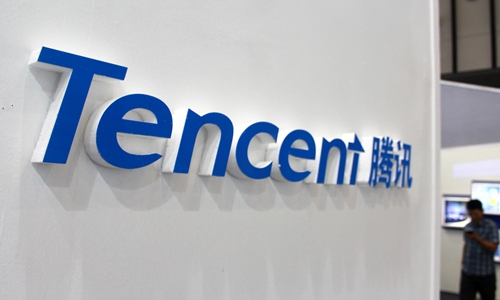Tencent denies it deleted user files from Huawei phones

China's technology giant Tencent reaches out to individuals and organizations worldwide with its telecommunication services. Photo: cnsphoto
Chinese social media giant Tencent's instant chatting platform QQ said it has never deleted user data through its app, after anger mounted among writers on China Literature - a Tencent-invested online reading platform - who have contract disputes with the platform and claim QQ deleted their photos through the app on Huawei mobile phones.
According to media reports, some writers from China Literature said their photos saved from QQ group chats had been quietly deleted by the QQ app on their Android phones. And they claim the deleted images are related to their disputed contracts with the platform.
In a statement on Tuesday, QQ said the deleted images were temp files and the original files were still in their albums. They added that they are working with Huawei to improve customer experience.
"When QQ saves files, its app on some Android-powered phones creates temp files to test the system, and the temp files are deleted before the original files are saved. What Huawei phones deleted were the temp files," read the statement. "QQ never deletes photos and files saved by users."
In response to the issue, Li Xiaolong, Huawei's vice president of product lines, said on Wednesday that there are some apps on Huawei phones that automatically delete user files, but most delete functions are for expired files.
"Huawei has added an image and video deletion protection feature to the EMUI 9.0. Whenever a third-party app removes a photo or video from a gallery, it will alert the user in the notification bar and restore the deleted content," Jiemian.com reported, citing Li's comments.
China Literature has been involved in disputes with the writers due to revised contracts which the authors claim added bullying terms including new copyright clauses.